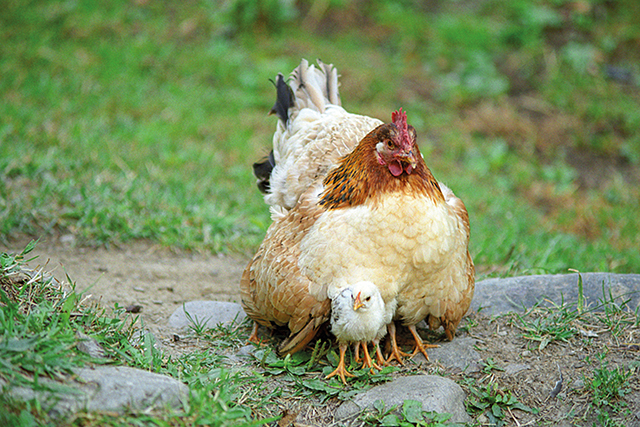When we moved from Tbilisi, Georgia, to Etseri, I was the first person in my family to have chickens (and earlier, cows). My wife was not raised on a farm, so she didn’t have to. I still had a lot of learning to do about working with birds.
What do they eat? What do they eat? In winter, they can only eat seeds, which are given to them morning and evening. Except for winter, you can give them a small amount of corn each morning to get them going. In winter, they need water in the barn, but in other seasons, local streams will do. The open sky is their preferred environment. They will not venture outside in the winter because of the deep snow. But once the snow has melted, they prefer to spend the majority of their time outdoors. They scratch the bare earth and then turn it over to see if there is a worm. If I am hoeing around the barn, the worms will look for worms on the newly exposed soil. We discourage them from trespassing on our raspberry canes and herbs at the opposite end of the property by putting up fences that are high enough so they can’t climb over them.
Predators include foxes, large enough raptor birds, and sometimes a naughty dog, which should be punished (or its owner, for letting it loose if it’s going to behave so badly off home soil!). Predators can be foxes or large raptor bird species. Sometimes a naughty pet dog should also be punished. Domestic cats do not pose a serious threat.
The first half of the battle is to stop predators from entering your barn while allowing chickens to come in and out. They are more vulnerable during the daytime, especially after winter. Unfortunately, each of my neighbors owns a rifle. They use it to shoot raptors from the sky. Chickens can also get into nearby fields and cause minor damage to shallow potatoes.
If you don‘t want fertilized egg, the best number of roosters for your flock is either one (if you do not want fertilized eggs), or none. If you have two roosters, one will always win fights. As I found out, the same thing can happen if your rooster’s strength isn’t up to par with a neighbor’s. The neighbor can take advantage of this weakness and make life miserable for the home boy. I had to lure him into the barn and then enter and close it behind me. He then led me on a wild chase until I caught him. I gave him back to the owners and asked them to keep him away my hens. Rinse and repeat until they finally managed to imprison the invader long enough to break his bad habit.
If you give the hens the right conditions, they will lay an egg every 2 days. It takes a bit of psychology to get their instincts working. It is best to find a sheltered area in the barn, with some hay. Do not leave it out in the open. A box that is a couple times larger than a standard shoebox would be ideal. Once winter is over and the weather starts to warm up, they start laying. You can store the eggs in a cool area, but you should leave the last egg to encourage more laying. If you have 12 eggs or more, you can give them back to the hen and she will sit them on them for about three weeks to hatch them.
The trouble begins when multiple hens lay their eggs in the same place, despite all your efforts to give them each their own nice box. If two or more hens are brooding at the same time, their instinct is to fight over the place and destroy the eggs.
You may need to help the chicks out of a box if they are still in it. Then, place them on the ground. For a few days they will eat unsalted crumbled cheese, then wheat seed.
The hen will make them accustomed to her voice and presence by using her unique clucks. It is the sweetest sight to see a hen with one or two chicks peeking out of her wing. She takes them out as soon as the weather is warm enough to teach them to be themselves.
The rain outside can be a real threat to new chicks. If they are separated from their mother, it can make them cold and wet or trap them in mud. They are fragile. One of the hundreds that have been hatched had legs deformed and was unable to walk. It was best to have it die quickly, as it would be better than a slow death. I’ve also lost a few to the cold and others to raptors. Nature is, after all, red in tooth and claw.
If your hen is attempting to hatch one egg and you don’t have any other eggs, her brooding urge may have gone too high. The apparent remedy is to dip the hen a few times into cold water and place her under a bucket of air (of course, she must have some air!). in a cool place overnight. It’s a bit drastic, but it works.
Breakfast of kings: Fresh farm eggs, Svan salt and cheese, or toast with Marmite. You can make an omelet in a hundred different styles, at any time. Baking is more science than it is art for me, so I leave that to my wife who does it so beautifully. We won’t discuss free-range chicken here, except to say that its taste is superior to that a poor soulless imported battery bird. We’re trying to live locally.
Tony Hanmer is a writer and photographer who has been working for GT since 2011. He has lived in Georgia and Svaneti, respectively, since 1999. He runs the “Svaneti Renaissance” Facebook group, now with nearly 2000 members, at www.facebook.com/groups/SvanetiRenaissance/
He and his wife also run their own guest house in Etseri: www.facebook.com/hanmer.house.svaneti
BLOG by Tony Hanmer
Read More @ georgiatoday.ge













